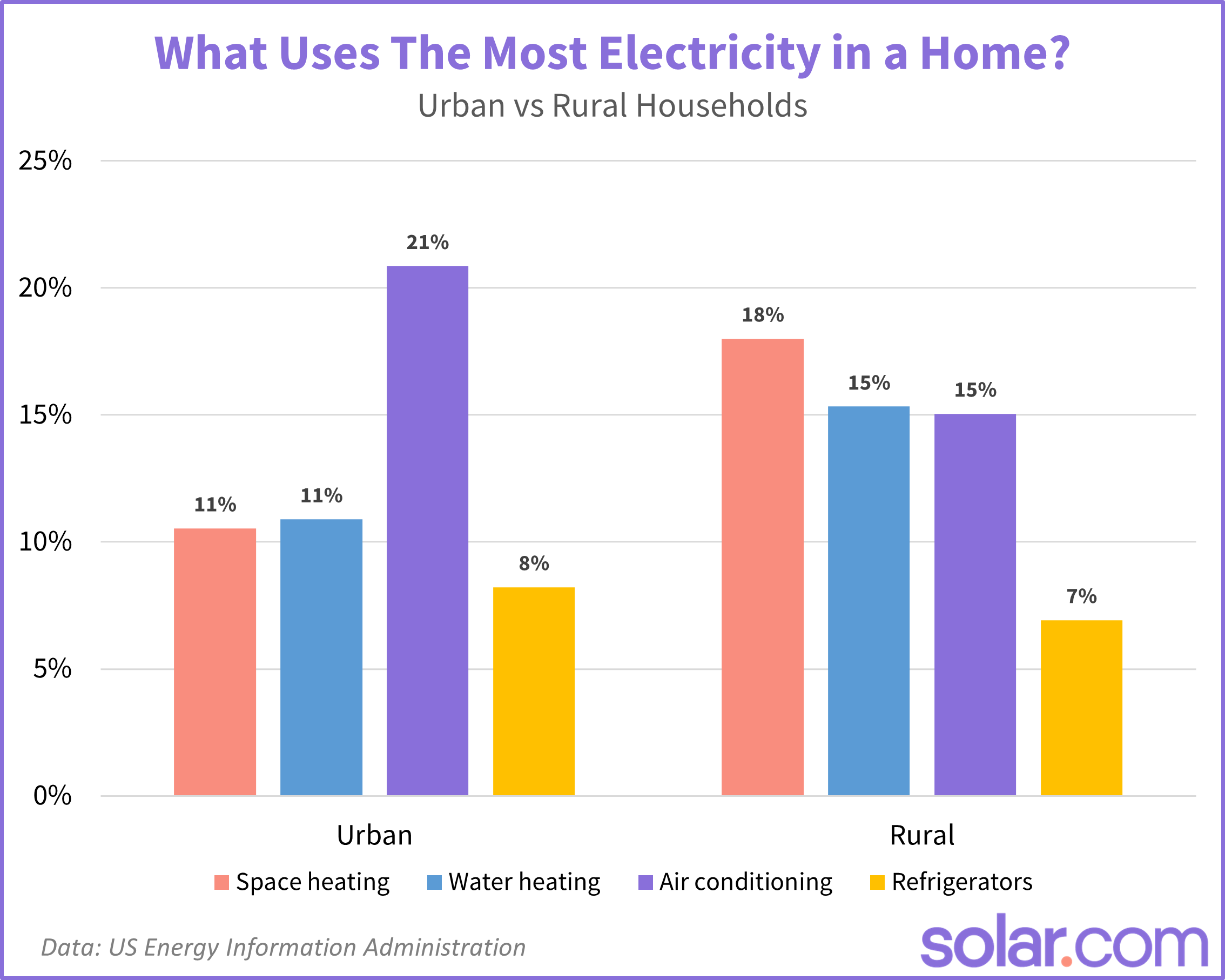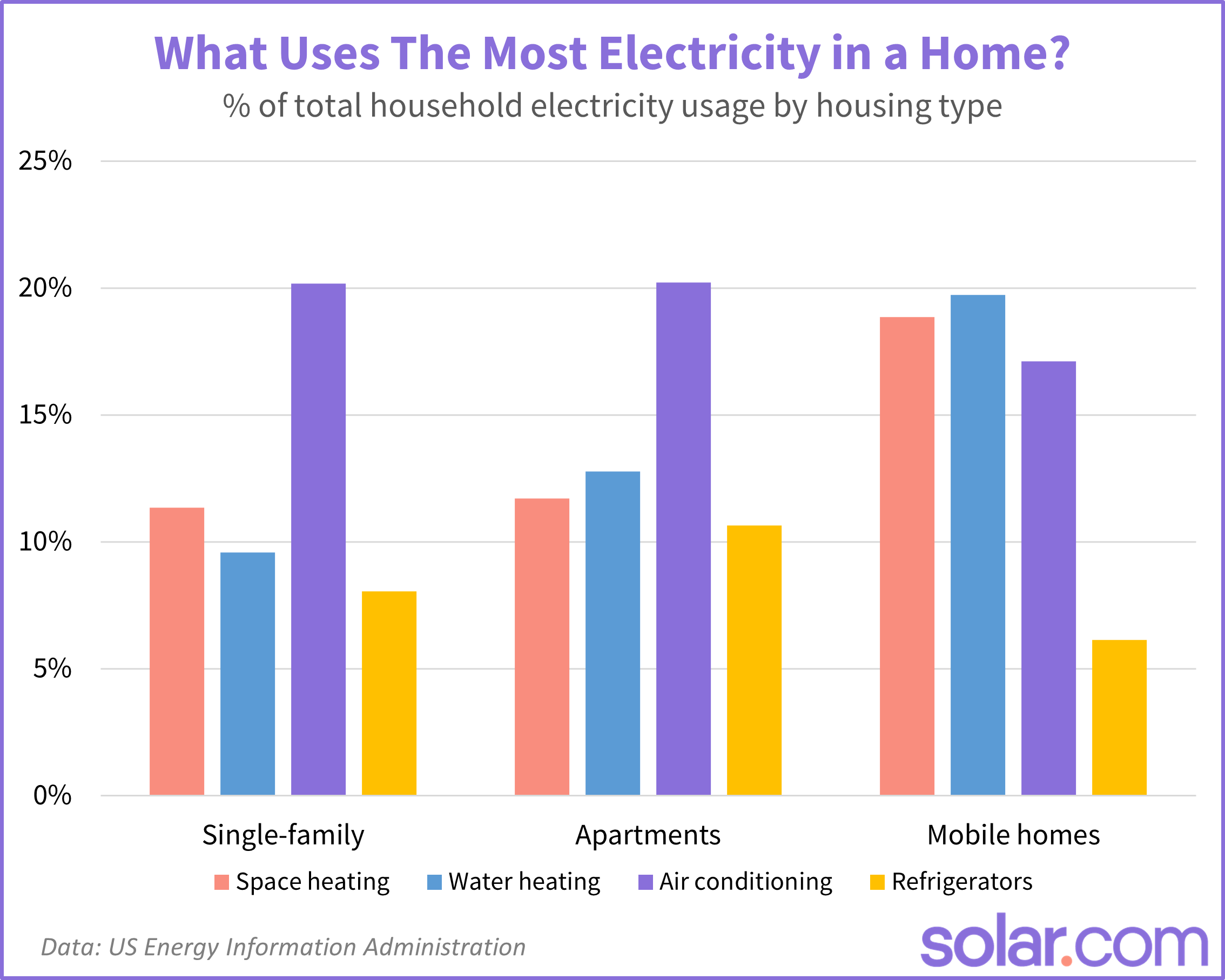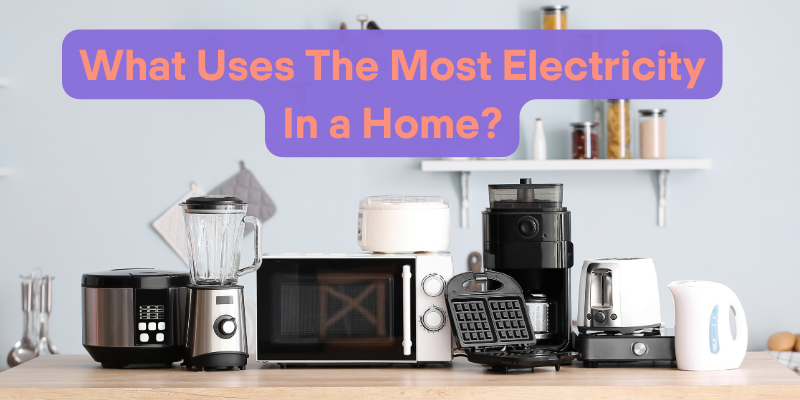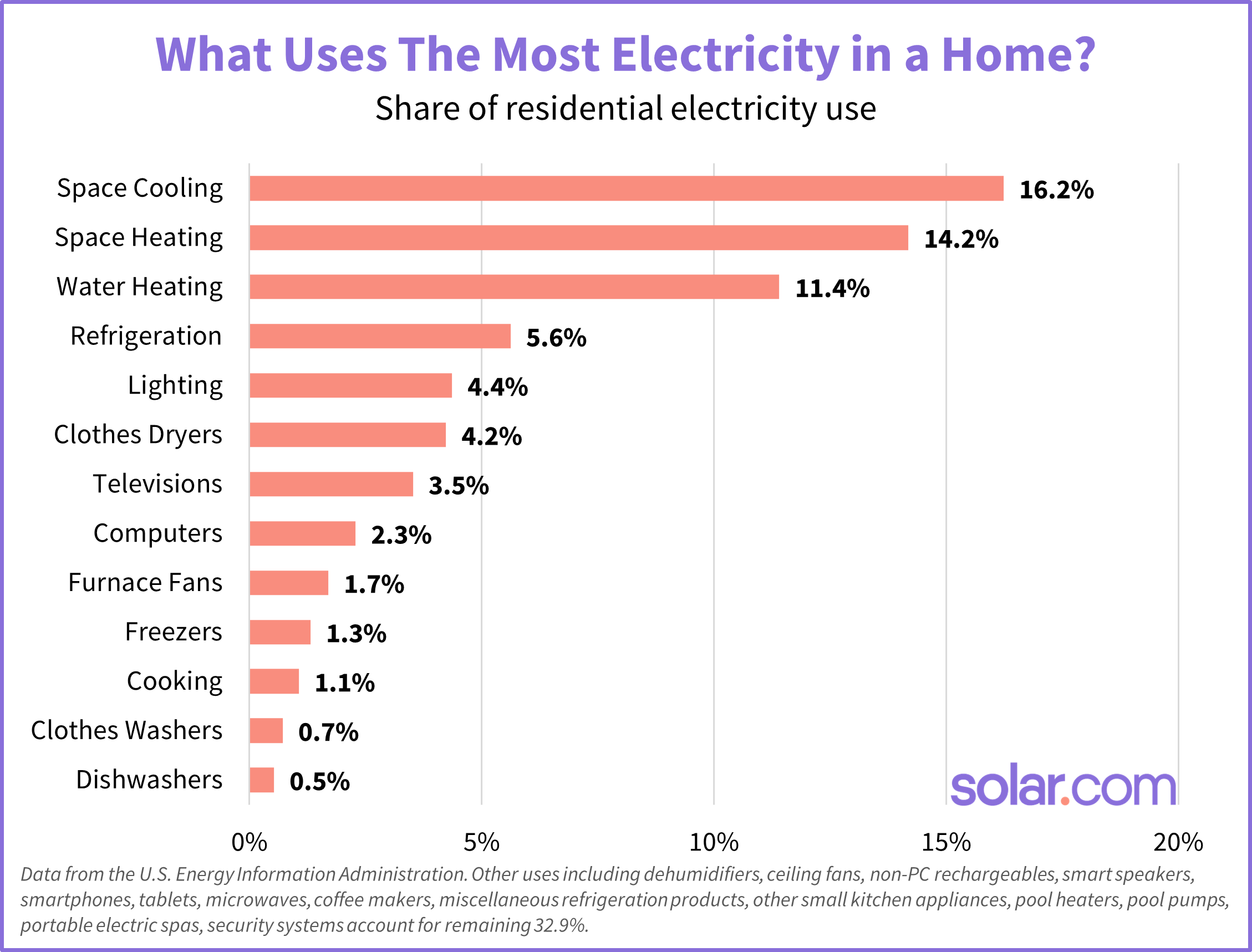What Uses the Most Electricity in a Home?
Between rising electricity prices and increasing consumption, Americans are facing some of the highest electricity bills of their lives in 2023. When those high bills arrive, it’s only natural to wonder what is using up so much electricity.
In this article, we’ll explore the power consumption of household appliances so you can make a battle plan for lowering your electricity bill.
However, if you find that lowering your usage isn’t effective, realistic, or desirable, connect with an Energy Advisor to see how solar panels can effectively reduce your energy costs!
What uses the most electricity in a home?
Air conditioning uses the most electricity in a home in every region of the US and accounts for 15-23% of the average household consumption. At around 12.5%, space heating has the second largest share of consumption in every region except the South.

Overall, the Big Four home appliances with the highest electricity usage are:
- Air conditioning – 19.5%
- Space heating – 12.4%
- Water heating – 12.0%
- Refrigerators – 7.9%
It’s worth noting that charging an electric vehicle (EV) at home uses roughly as much electricity as running an air conditioner, and can be the biggest consumer of electricity in households that have multiple EV’s charging in the garage.
Exactly what appliance uses the most electricity in a home depends on a few things, including where it’s located and the type of home it is. For example, air conditioning is the top consuming appliance in urban households while space heating is the top consuming appliance in rural households.
As for housing types, AC represents the biggest share in single-family homes and apartments, while water heating takes the cake in mobile homes. This is likely due to there being less space to heat and cool in mobile homes.

Your AC usage is the first thing to examine if your electric bill is high in summer, as it provides the greatest opportunity to reduce usage and, by extension, lower your electricity bill.
What small appliances use the most electricity?
After the Big Four major appliances, lights, clothes dryers, TVs, and computers make up the next largest portion of residential electricity usage. However, this will vary based on the type of appliances you have and how much you use them.
The chart below shows the average share of power consumption of 13 common household appliances in 2022.
What uses more electricity, TV or light?
Based on national averages, lighting uses more electricity per household than televisions by a slim margin. For the average household using 880 kWh per month, lighting accounts for around 38 kWh while TVs account for around 30 kWh.
At the average utility rate of 17 cents per kWh, that amounts to $6.46 per month for lighting and $5.10 per month for TVs.
Of course, this breakdown varies for each household based on the type of energy efficiency and usage of each item. For example, a household with LED bulbs that watches a lot of TV on multiple screens will likely have higher TV consumption than a household with incandescent lights that hardly watches TV.
What uses electricity at night?
There are two groups of appliances using electricity at night: Appliances you are using intentionally and appliances that are sucking energy while they are “off” but still plugged in.
Appliances that you run intentionally at night can include:
- Air conditioning and fans
- Heaters
- EV charging
- Refrigerators
- Dishwashers
- Device chargers
- Night lights/porch lights
Powering these systems at night isn’t necessarily a bad thing, especially if you have time-of-use rates where your rate is much lower during off-peak periods. In fact, it’s actually quite economical to run your dishwasher or laundry machines overnight while electricity is cheap instead to avoid running them during peak hours.
The second group includes systems that are “off” but still sucking power in standby mode (aka vampire appliances). And it isn’t very economical to have vampire appliances leeching electricity when you aren’t using them.
What appliances use the most electricity when turned off?
Systems that leech the most electricity when you are not using them can account for 5-10% of your annual household consumption, or nearly $180 per year for the average household. These appliances include:
- TVs and video game systems (especially older models)
- Device chargers (even if they’re not charging!)
- Computers, printers, and office equipment
- Stereos and set-top boxes, such as DVRs and cable boxes
- Microwaves
- Coffee makers
- Plug-in lamps
Again, these systems will vary from household to household. You can reduce the impact of vampire appliances by unplugging them when not in use, using a power strip to turn them off, or upgrading to energy efficient appliances that use less power in standby mode.
Get to know your electricity usage so you can pay less for it!
Now that you have an understanding of what appliances use the most electricity in your home, you can make a battle plan for lowering your consumption and, by extension, your electric bill.
However, if you find it’s inefficient or unrealistic to make meaningful cuts to your electricity consumption, connect with an Energy Advisor to see how solar panels can reduce the price you pay for electricity.









